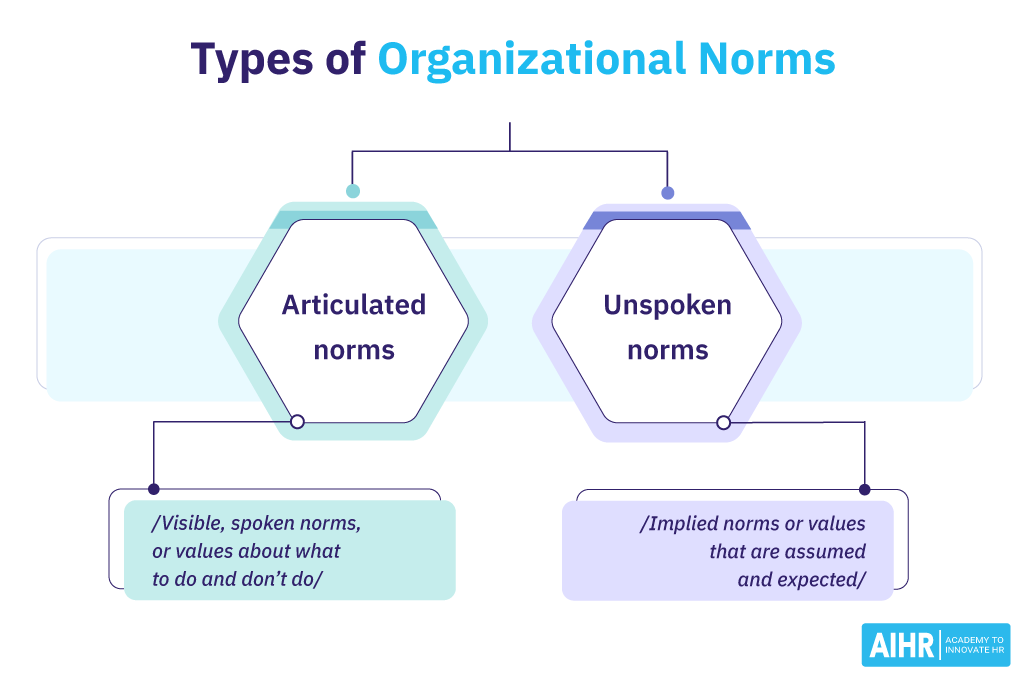Organizational Norms
What are organizational norms?
Organizational norms are an informal unspoken set of rules or guidelines outlining acceptable behaviors that all employees are expected to adhere to. These can be articulated or implied for all members of the organization. This conformity becomes essential to maintaining a specific internal environment in any organization.
These customs or standards have gradually developed through past events, critical incidents, and conscious decisions. Together they underpin what is encouraged, discouraged, accepted, or rejected in the workplace. They create a full picture of the organization’s identity, what it stands for, and where it’s heading.
A thoughtful, well-defined, and strategically rolled-out set of norms can help every organization function more smoothly, increase performance, build a culture conducive to success, and meet its long-term goals.
Organizational norms are shaped by business founders, leaders, and every employee that subsequently walks through the door, as well as by the behaviors that are tolerated and promoted within the organization. Organizational norms, culture, and values are all inextricably linked.
Periods of extreme stress or growth, change in leadership, and new team members all impact organizational norms.
Depending on the clarity, strength, and willingness of employees to adopt organizational norms, they can either contribute to the overall success of an organization or prevent it.
What are the types of organizational norms?
There are two types of organizational norms to understand here:
Articulated norms
Visible, spoken norms or values about what members in an organization do and don’t do. These values might be expressed in the company’s vision, and mission statement as well as within the core company values and policies. Articulated norms and values may, for instance, be included in employees’ KPIs and regularly measured.
Unspoken norms
These are the implied norms or values that members of the organization assume and expect without the organization articulating these as expectations. An unspoken organizational norm example would be the expectation that everyone works overtime when there is a deadline to meet.
Both articulated and unspoken norms will influence the organization’s culture and value system.

Why are organizational norms important?
Organizational norms are important because they
- make predicting behavior easier,
- reduce potential problems,
- and provide an organization with a distinctive identity.
When business leaders are more deliberate in defining organizational norms, it can result in more cohesive teams who practice accountability and achieve higher performance and standards.
Clear organizational norms also make it easier when onboarding new hires, as they provide a set of expectations to follow. That is reinforced by existing team members as well.
Building your organizational culture and values will require you to assess your organizational norms and the standards currently governing your employees’ behavior at work.







